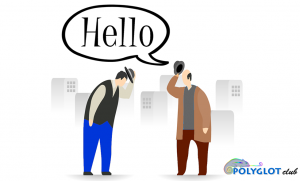Difference between revisions of "Language/Lingala/Vocabulary/How-to-Say-Hello-and-Greetings"
< Language | Lingala | Vocabulary
Jump to navigation
Jump to search
m (Quick edit) |
m (Quick edit) |
||
| Line 81: | Line 81: | ||
*More information on her website: http://users.elite.net/runner/jennifers/ | *More information on her website: http://users.elite.net/runner/jennifers/ | ||
==Free | ==Free Lingala Lessons== | ||
*'''[[Language/Lingala/Grammar|Grammar Lessons]]''' | *'''[[Language/Lingala/Grammar|Grammar Lessons]]''' | ||
Revision as of 21:26, 3 September 2021
🤗 Lingala Greetings for Everyday Life
Hi Lingala learners! 😃
Do you want to learn how to say “Hello” in Lingala?
Greetings are an important part of any language because they allow you to connect and communicate with others.
If you’re planning a trip to the country or are trying to learn Lingala, keep reading to discover some of the most important greetings.
Let’s get started! 🤗
Greetings
| English | Lingala |
|---|---|
| general greeting | Mbóte |
| general greeting | Mbóte na yó |
| general greeting | Losáko |
| how are you? | Ndenge nini? |
| reply to Ndenge nini | Malamu |
| how are you? | Sángo níni? |
| reply to Sango nini | Sángo malámu |
| reply to Sango nini | Malámu melesí |
| how are you? | Ozali malamu? |
| reply to Ozali malamu | Ee, nazali malámu |
| morning greeting, literally "how did you sleep?" | Olalaki malámu? |
| reply to Olalaki malamu | Mbóte |
Sources
Polyglot Club thanks Jennifer Runner for her outstanding work in collecting some of the phrases for this Lingala lesson. 👍
Her objective is, like the Polyglot Club, to promote intercultural communication and understanding and to raise awareness of linguistic diversity in the world. ✨
- More information on her website: http://users.elite.net/runner/jennifers/
